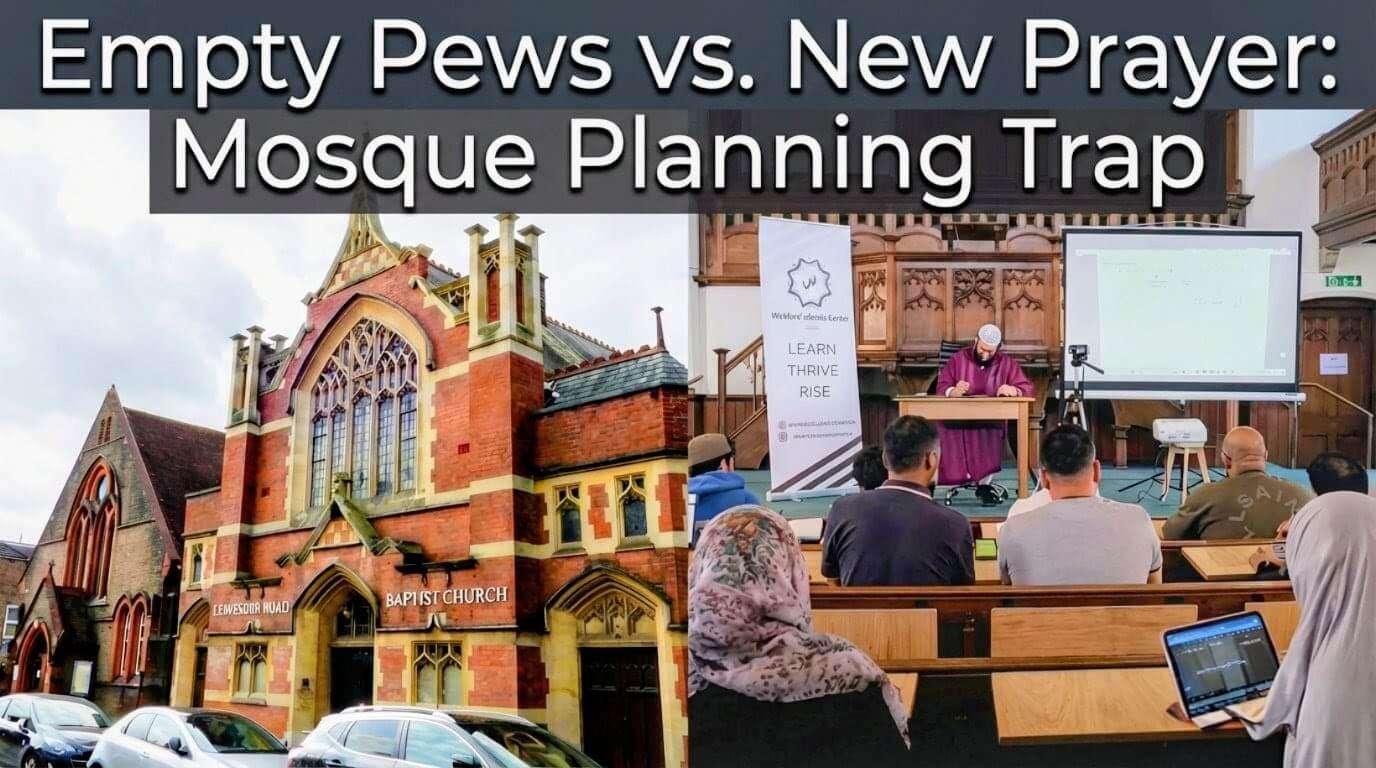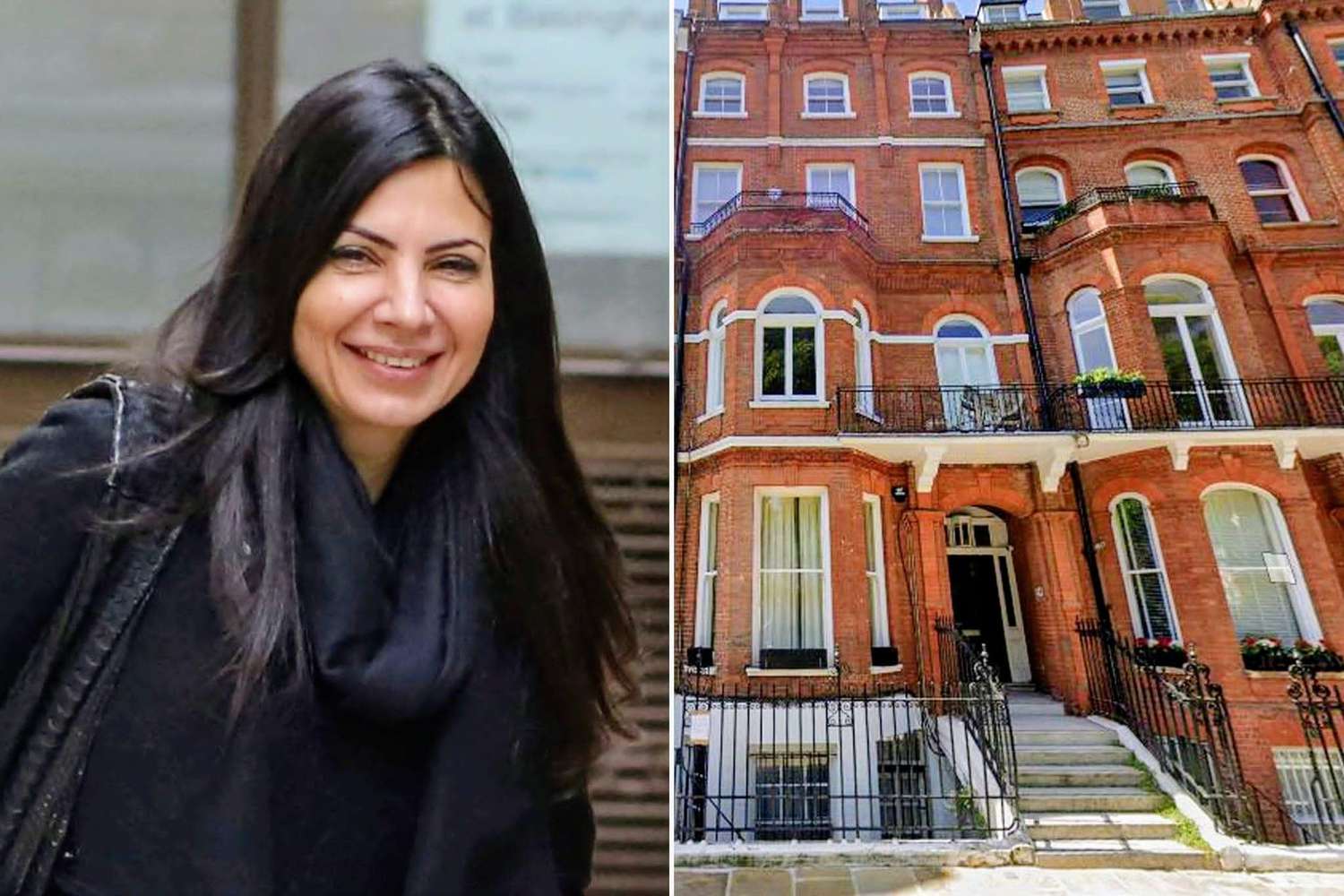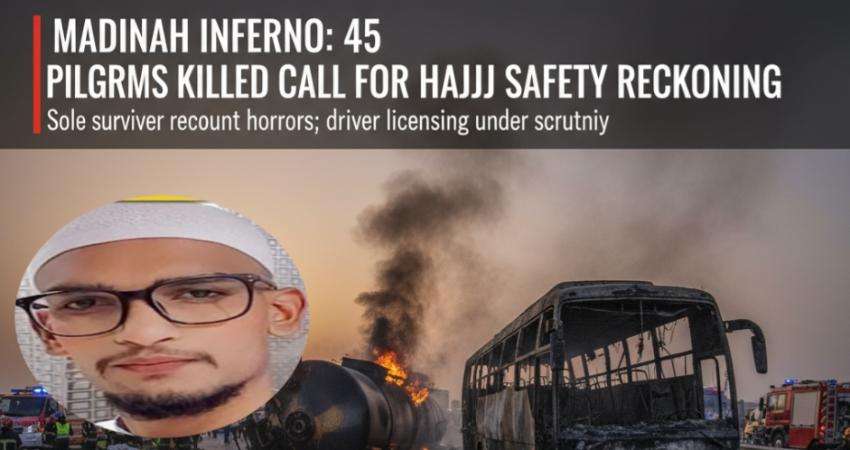Stop the Annual Bloodshed: 45 Dead Demand Hajj Safety Reckoning on Saudi Highways-The horrific bus collision and subsequent fire near Madinah that claimed the lives of forty-five Indian Umrah pilgrims on Monday is not merely a catastrophic accident; it is a tragic, recurring signal of critical systemic failures on Saudi Arabia’s sacred highways. This tragedy, which devastated dozens of families primarily from Hyderabad and Telangana, forces a painful reckoning with the urgent need for comprehensive transportation safety reform for the millions of faithful who visit the holy sites each year, Daily Dazzling Dawn understands.
The incident occurred in the pre-dawn hours, approximately 25 kilometers before Madinah, as the bus carrying 46 pilgrims completed the Mecca leg of their Umrah journey. Hyderabad Police Commissioner VC Sajjanar confirmed the bus, transporting pilgrims who had departed India on November 9, struck an oil tanker. The impact caused a massive explosion that engulfed the vehicle within minutes, leaving the passengers—many of whom were reportedly asleep—with virtually no chance of escape. The rapid spread of the inferno accounted for the overwhelming fatality count, with only one individual, Md Abdul Shoaib, surviving the blaze, now in critical condition in a Saudi ICU.
The human cost of this disaster is profound. Of the 54 members in the original tour group, 46 boarded the ill-fated vehicle. The immense scope of the loss has been underscored by reports that multiple members of large, extended families were wiped out, shattering communities across Telangana. In response to the crisis, the Indian Consulate General in Jeddah established a 24/7 control room, and the Indian government has assured that all necessary support is being provided, including coordinating with Saudi authorities for the handling of the remains and providing assistance to the lone survivor and the bereaved families.
However, focusing solely on the aftermath overlooks the core issue: the chronic danger of intercity pilgrim transport. While no consistent annual statistic of pilgrim deaths exists, major bus accidents on the Mecca-Madinah corridor are a grim, cyclical reality. High-casualty incidents—such as the 35 foreign pilgrims killed in a 2019 crash near Madinah, the twenty killed in a bus fire in Asir province in March 2023, or the four British pilgrims who died in a 2018 tanker collision—demonstrate that this is a persistent public safety hazard, not an anomaly.
For the Kingdom of Saudi Arabia, which hosts millions for Hajj and Umrah annually, the primary focus must pivot from reactive emergency response to proactive regulatory enforcement. The sheer volume of traffic and the long, exhausting hours demanded of commercial drivers on pilgrimage routes necessitate an immediate and transparent review of driver licensing and operator regulations. Fatigue management, stringent minimum age and experience requirements for commercial bus drivers, and the mandating of advanced safety technology across all transport fleets must be non-negotiable standards. Furthermore, authorities must implement far more rigorous and frequent inspections of pilgrim vehicles to ensure mechanical integrity and fire safety preparedness. This latest devastating tragedy is an urgent demand for a systemic overhaul, ensuring the sacred journey of the faithful is not routinely jeopardized by preventable road safety failings.








.svg)


